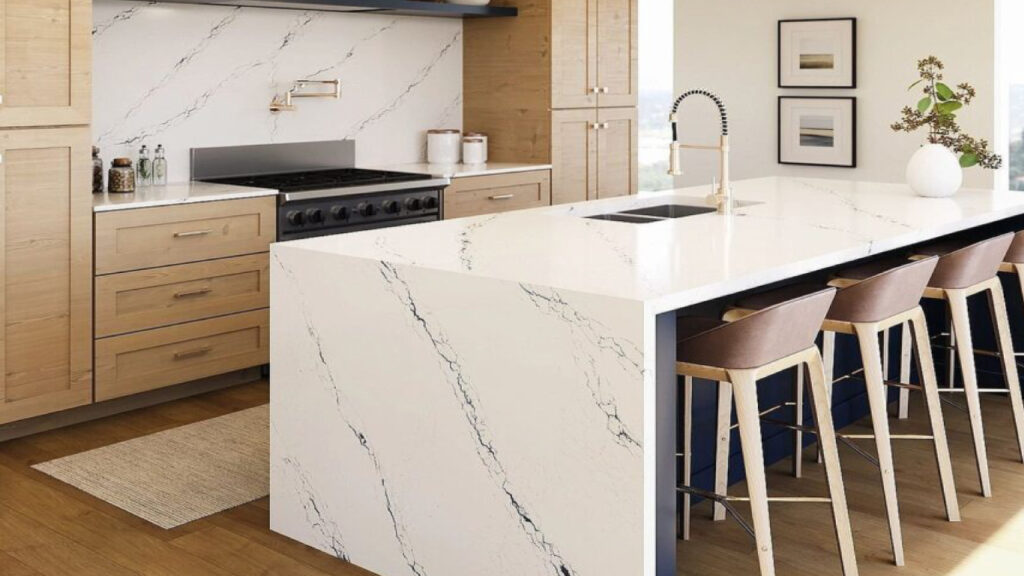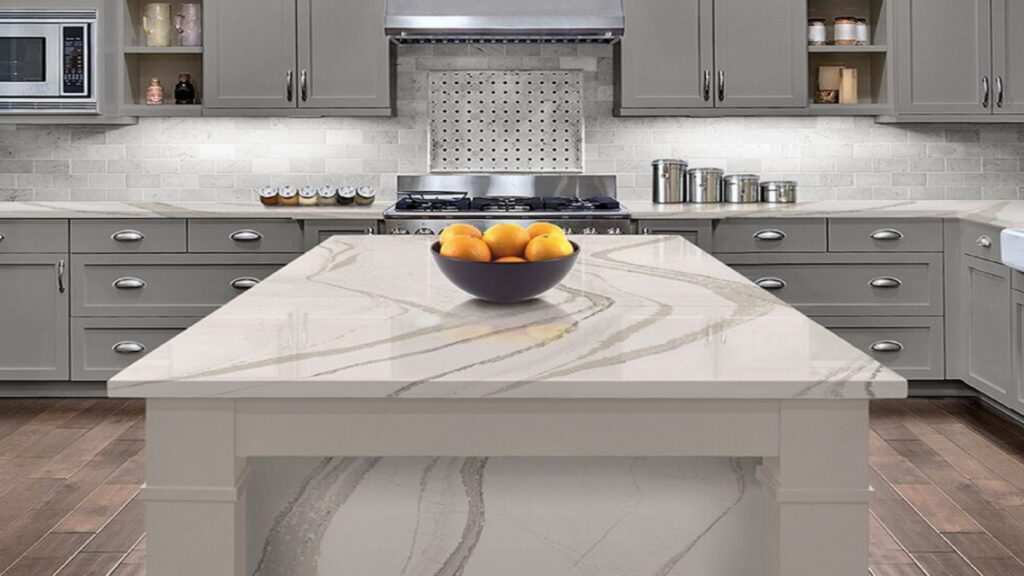In the realm of kitchen design, countertops play a pivotal role, not only in aesthetics but also in functionality and durability. With an array of materials available in the market, choosing the right countertop for your kitchen can be a daunting task. Each material brings its own set of advantages and disadvantages, catering to different needs and preferences. In this blog, we’ll delve into some of the most popular kitchen countertop materials, exploring their pros and cons to help you make an informed decision.

Granite
Pros
Granite countertops are highly durable, resistant to heat, scratches, and stains. They offer a timeless aesthetic appeal, with a variety of colors and patterns to choose from. Additionally, granite adds value to your home, making it an attractive option for homeowners.
Cons
While durable, granite requires periodic sealing to maintain its integrity. It can be relatively expensive compared to other materials, and its natural variations may not appeal to those seeking a uniform look.
Quartz
Pros
Quartz countertops are engineered to be non-porous, making them highly resistant to stains and bacterial growth. They offer a consistent appearance, with a wide range of colors and patterns available. Quartz is also low-maintenance, requiring no sealing or special cleaners.
Cons
Despite its durability, quartz can be susceptible to heat damage, so caution is required with hot pots and pans. It tends to be pricier than some natural stone options, which may not fit every budget.
Marble
Pros
Marble countertops exude elegance and sophistication, adding a luxurious touch to any kitchen. They are heat-resistant and naturally cool, making them ideal for baking and pastry-making. Marble also ages gracefully, developing a unique patina over time.
Cons
Marble is softer and more porous than granite or quartz, making it prone to scratches, stains, and etching from acidic substances. It requires regular sealing and maintenance to preserve its beauty, and it can be one of the costlier options.
Butcher Block
Pros
Butcher block countertops offer a warm, rustic charm to kitchens, perfect for those seeking a cozy atmosphere. They are durable and can be sanded and refinished to remove scratches and nicks. Butcher block is also more forgiving on knives, reducing wear and tear.
Cons
Wood countertops require regular oiling to prevent drying and cracking, and they are susceptible to water damage if not properly maintained. They can also harbor bacteria if not cleaned thoroughly, making them less suitable for heavy-duty use.

Concrete
Pros
Concrete countertops offer a modern, industrial aesthetic with endless customization options in terms of color, texture, and shape. They are highly durable and heat-resistant, and minor imperfections can add character to the surface.
Cons
Concrete countertops can be prone to cracking if not properly installed or maintained. They are porous and require sealing to prevent stains and moisture absorption. Additionally, the customization process can be time-consuming and costly.
Conclusion
Choosing the right kitchen countertop material involves weighing the pros and cons against your specific needs, lifestyle, and budget. Whether you prioritize durability, aesthetics, or ease of maintenance, there’s a countertop material out there to suit your preferences. By understanding the characteristics of each option, you can make an informed decision that will enhance both the functionality and beauty of your kitchen for years to come.

